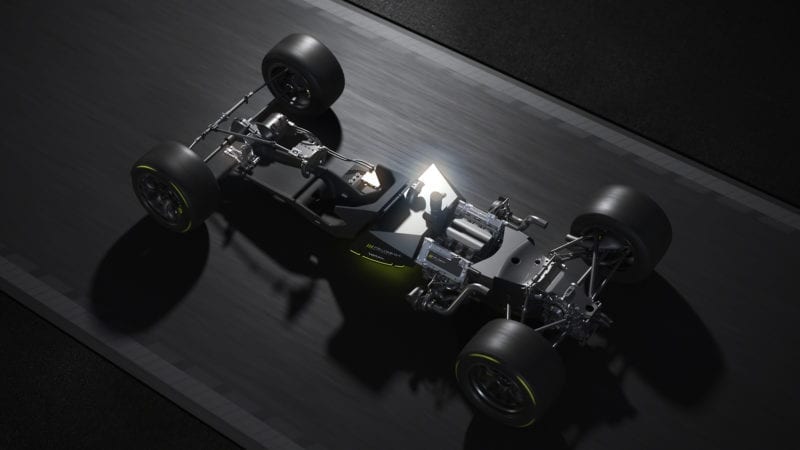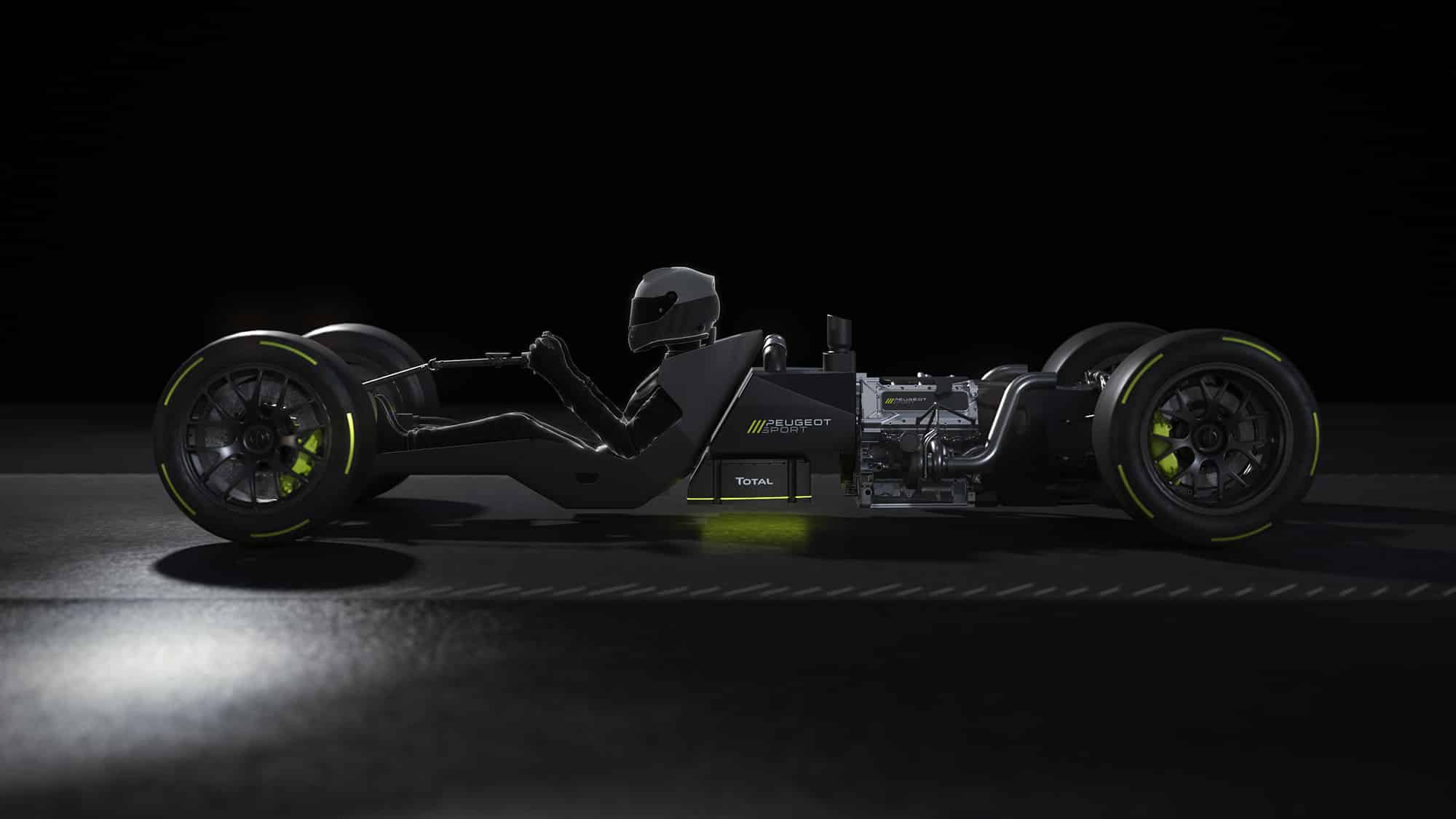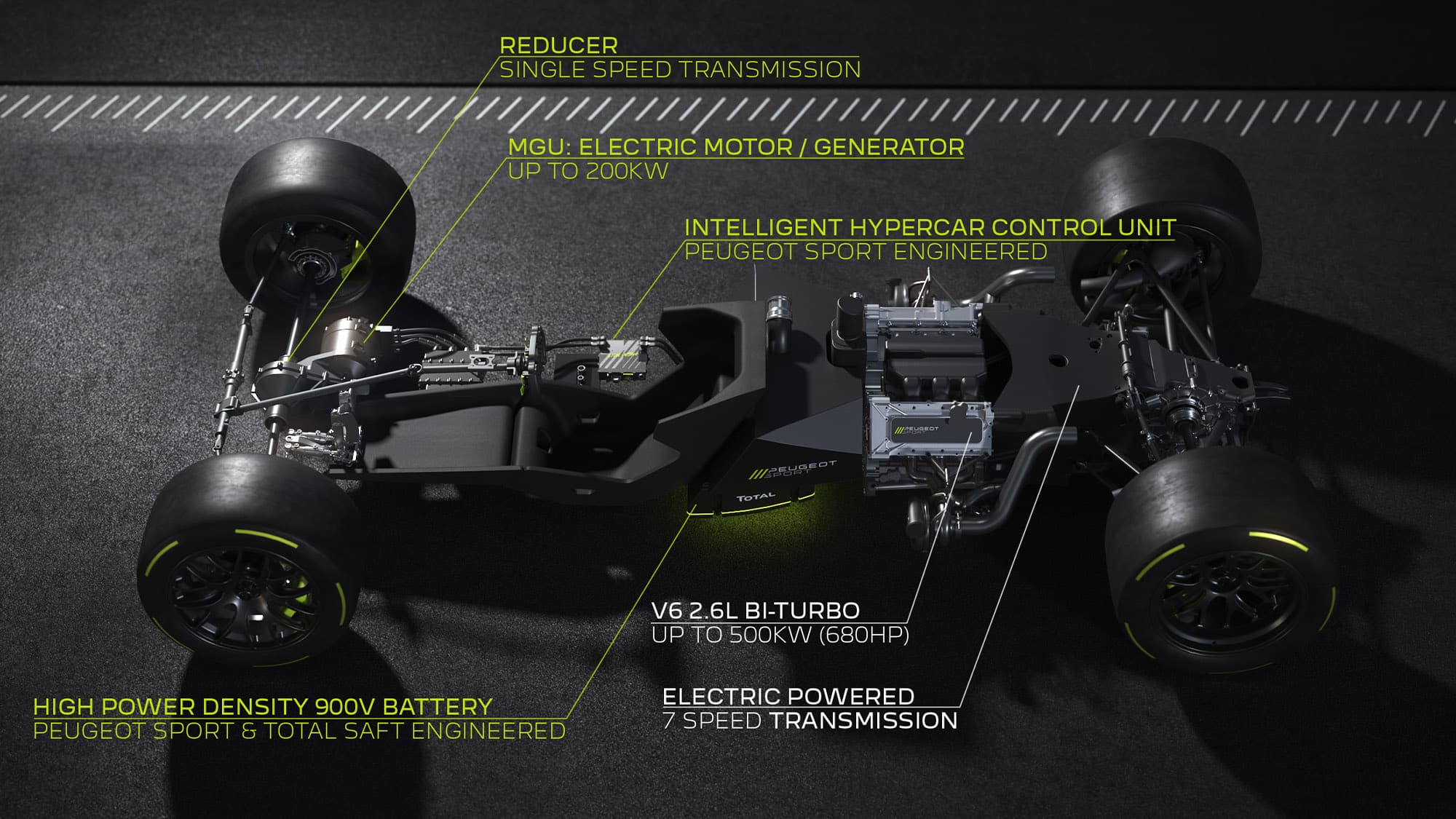V6 hybrid power for Peugeot's 2022 Le Mans Hypercar
Peugeot has revealed details of the hybrid system that will power its Le Mans hypercar, which will race in 2022

The Peugeot hypercar chassis and powertrain - can they emulate 2009 success?
Peugeot
Peugeot’s new Le Mans hypercar will use a twin-turbo, 2.6-litre V6 engine when it returns to the World Endurance Championship (WEC) in 2022, the company has announced.
The 671bhp petrol engine will power the rear wheels, while a 268bhp electric motor provides drive at the front.
The 165kg powertrain is said to have been influenced by the diesel-powered 908 line, which won Le Mans in 2009, as well as the four-cylinder turbo WRC car run by sister company Citroen.
It’s due to begin bench testing in the first half of next year before track tests at the end of 2021. Its first race is expected to be in 2022, but the team doesn’t yet know whether it will be ready for the start of the season.

Peugeot says that there are no plans to make a road-going version of the Hypercar, or to use the engine in a production car: the Hypercar regulations allow for a pure prototype or a homologated production design. Design elements of the sports car will however be mirrored in road-going models
Engine rules for the new WEC category are relatively loose but Peugeot has opted for a similar solution to its Hypercar rivals, Toyota and Glickenhaus, who are also using twin-turbo V6s.
“We initially considered a single turbo, but that would have prevented us from achieving our engine’s centre of gravity target,” said François Coudrain, powertrain director for Peugeot’s WEC programme. “A twin-turbo V6 block offers the best trade-off between technology, weight, packaging of the engine’s ancillaries, reliability and performance.”
Hypercar regulations are aligned with rules for LMDh cars, which will also be competing for top honours at Le Mans and in WEC.
Power output is capped at 671bhp, so powertrain management software automatically limits output from the engine while it is assisted by the electric motor, and the car is running run four-wheel drive mode.
When the battery runs low, the internal combustion engine drives the rear wheels with the full power allowance.
Cars are able to run on electric power alone in the pitlane or if speeds are restricted to 37mph (60km/h) but otherwise must rely entirely on their engine below 75mph. This means that only the rear wheels are powered when starting from standstill and at the exit of slower corners.

Peugeot’s system can be plugged in to fully charge the 900v battery and then relies on energy recovered under braking to recharge on track.
“The main parameter will be to optimise how the energy stored in the battery is used,” said Kamen Nechev, Chief Technical Officer of Saft, a subsidiary of oil company Total, which is working on the battery with Peugeot
“To achieve this, you need an extremely short charge-time combined with high-capacity storage cells to form a package that enables maximum power to be delivered as rapidly as possible. The most competitive solution resides in the management of charge optimisation and the amount of power available in real time.”
Balancing charging and deployment will be a challenge for strategists, with several factors to take into account. If the battery is empty at the end of the straight, the regulations allow a short increase in power output to 691bhp; the extra 20bhp being used by the front-wheel motor generator to recharge the battery.
Peugeot believes that power management will be a key differentiator between teams in the new era of sports car racing, which is behind its decision to opt to build a Hypercar rather than an LMDh model, which uses a spec hybrid system.
It’s using expertise from the DS Techeetah Formula E team, part of the PSA Group, in an attempt to seize an advantage in this area.
Peugeot’s return to sports car racing will revive its battle with Audi, which saw the manufacturers go head-to-head between 2007 and 2011. The German company is developing an LMDh car and there are suggestions that Porsche will do the same.
The name of Peugeot’s car is likely to start with a 9 but hasn’t yet been confirmed.
